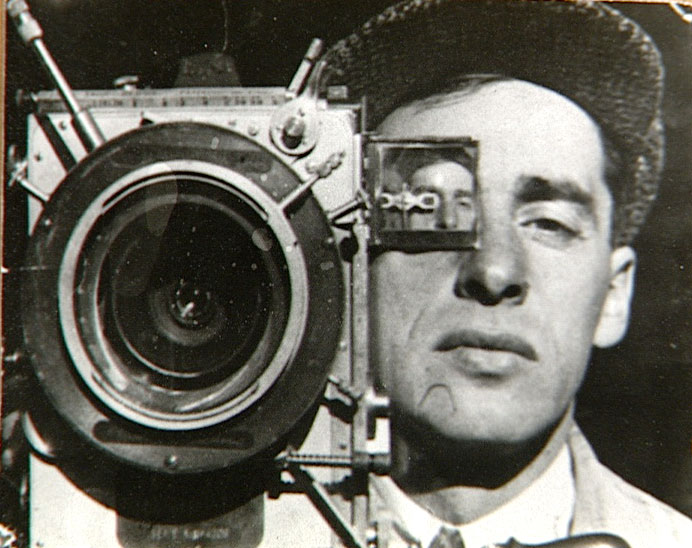
Dziga Vertov – Man With a Movie Camera
Documentaries haven’t always been a fan favorite at the Academy Awards. Audiences are attracted to lavish sets, familiar celebrities, and tear-jerking storylines. But documentary films are not so different from the films we are familiar with, they simply strive to translate life’s raw experiences in a popular format.
Contemporary films are more indebted to the legacy of documentary than we often realize. In the 1920’s and 1920’s, Soviet filmmakers felt so inspired from the vivacity of modern art and rapidly growing cities that they crafted powerful expressions; the avant-doc of The Man with a Movie Camera (1929) by Dziga Vertov is an example. Vertov coined the idea of the “cinematic truth,” emphasizing that the camera is capable of portraying the human experience more accurately than the human eye.
This reliance on the power of the camera has been passed down to documentary filmmakers throughout history. Films today still reflect the creative techniques from primitive documentaries – think of non-narrative approaches in indie films.
The relationship between documentary film and fictional films is often debated – How does editing influence the audience’s perspective? How can one produce a true documentary?
Every year, the Academy Awards looks to highlight some of the best films and award the people who worked hard toward their production. The first year documentary films were recognized was 1942; during WWII when the usage of raw footage was both a necessary source of information and emotionally shocking. The next year, they split the category in two: short films and feature-length, to better serve the variety of documentary film.
Since the 1940s, the art of documentary has developed dramatically. Filmmakers have moved away from avant-garde, philosophical reflections and aggrandizing propaganda material toward detailed, highly-researched investigations into personal stories. Some of the best examples in the modern documentary canon are Man on a Wire (2008) that evokes the magical personality of Philippe Petit and his endeavor to cross the World Trade Center on a tightrope. This film was awarded an Oscar. In 2012, Searching for Sugarman escalated in popular with its Oscar winning. This soulful documentary tells the tale of Rodriguez, a folk musician popular in South Africa but essentially unknown everywhere else. Many documentaries are effectively informative and purposeful; anyone who has browsed Netflix will understand the plethora of directors that have investigated food policy in the United States and highlighted animal rights around the globe.
